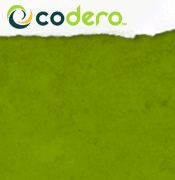How Fast Will Your Site Need to Be?
The type of connection your Web host has to the Internet will determine how quickly and easily your site's content can be viewed by your visitors. It's important to select the Web server connection that's right for you. And Web hosts with faster connections don't always cost more than those with slower connections.
T1 (1.5 megabytes per second [Mbps]). Most Web hosts have faster connections than this. If you have a Web site that is quite simple (text and a few small graphics), a T1 connection may be right for you. If the Web host has more than a few active sites, however, even this may prove to be inadequate.
T3 (45 Mbps). This is a popular offering among small to medium-sized Web hosting companies. It has enough bandwidth to serve several active Web sites without bogging down.
DS3, OC3, OC12. These are very fast and wide connections to the Internet, and they should be capable of quickly serving even the most complex Web content.
Redundant connections. Sometimes connections to the Internet can fail because of accidents or emergencies, or they are taken down temporarily for maintenance. Many Web hosts have multiple connections to the Internet to ensure that your content is available at all times. If you need your Web site to be up as consistently as possible, a Web host with redundant connections is a must.
Peering. Some Web hosts with redundant connections offer "peering." Peering automatically ensures that the fastest connection is used for your Web site, making a faster, smoother Web surfing experience for your site's visitors.
Mirroring. Some Web hosts offer mirroring. A mirrored site has identical content spread to Web servers in different locations around the country or the world, giving faster response times to visitors to your Web site.
Read other web hosting Articles
- SHOWCASES -



